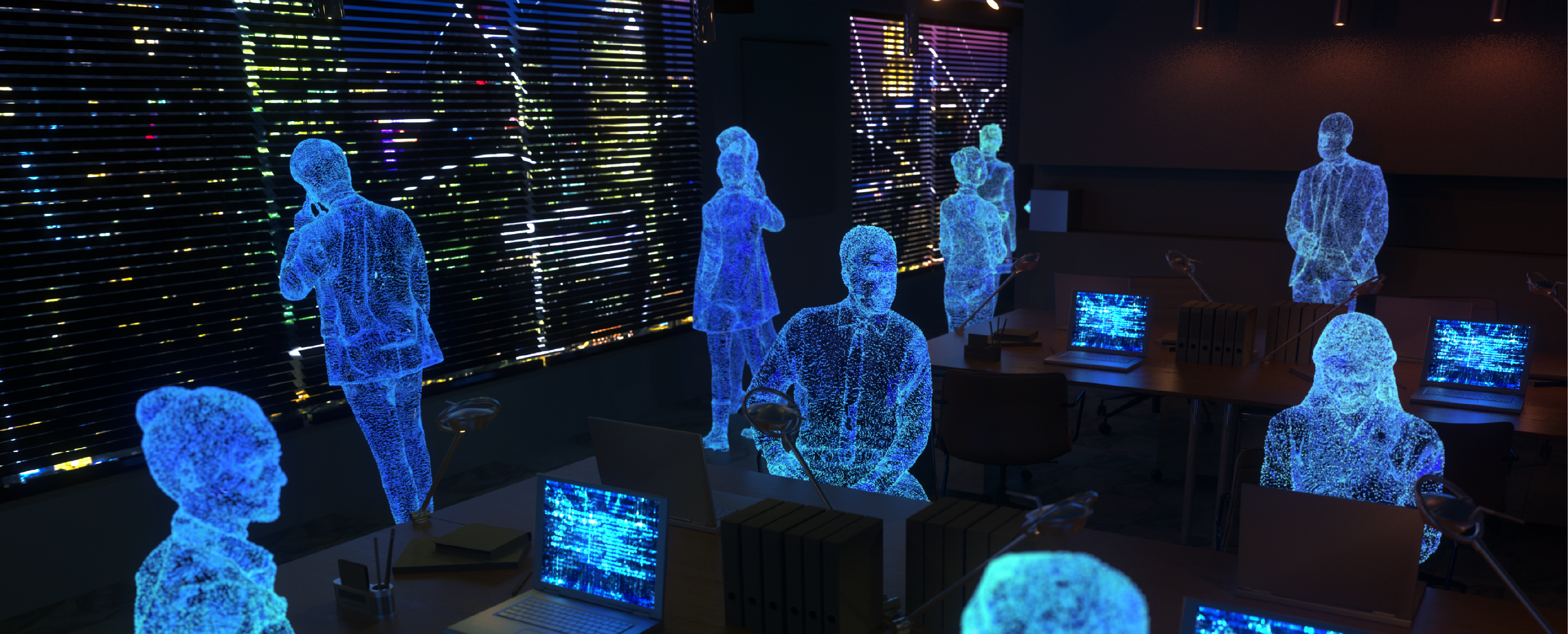How AI Might Transform Work

There has been a lot of discussion and widespread concern shared about AI eliminating jobs. Those concerns surfaced recently when IBM announced that the company expects to pause hiring for roles as roughly 7,800 jobs could be replaced by AI in coming years. But the impact of AI extends beyond job roles. AI can change the way people work in ways we cannot imagine today. For example, AI can potentially reduce stress and ease our workloads. This was a key finding of Microsoft’s recently published Work Trend Index Annual Report. The report, based on a survey of 31,000 people globally, gives business leaders one blueprint for considering AI a worker’s copilot.
How AI Might Remove the Drudgery of Work
The Work Trend Annual Report asserts that AI could remove the drudgery of work and unleash creativity. And it’s clear that workers are overwhelmed with meaningless tasks. The report says that the constant flow of digital data, emails, and meetings has surpassed humans’ ability to process it all. Nearly two out of three people (64%) surveyed say they struggle with having the time and energy to do their job — and those people are 3.5x more likely to struggle with innovation and strategic thinking. This is no surprise. According to a University of California Irvine study, it takes nearly 30 minutes to refocus after a person gets distracted.
People report that the number one productivity disruptor is inefficient meetings. Most people surveyed told Microsoft that it is difficult to brainstorm in a virtual meeting or catch up if they joined a meeting late, among many other sources of heartburn. And since February 2020, people are in 3x more Teams meetings and calls per week (192%) – which should not surprise anyone in the corporate world. How might AI solve the problem? Microsoft points out that AI could drastically reduce the number of people required to attend meetings if employees could use AI-powered intelligent meeting recaps, transcripts, and recordings to engage with meetings how and when it works best for them (akin to remote learning).
Microsoft also noted that employees are beginning to embrace the potential upsides of AI, especially as the promise of relief outweighs the fear of job loss. Microsoft found that about half of people said they’re worried AI will replace their jobs-- but 70 percent said they would delegate as much work as possible to AI to lessen their workload. Corporate leaders were also twice as likely to say that AI would be more valuable in the workplace to boost productivity rather than reduce personnel count. How? The answers are endless, actually. For instance, AI could:
- Banish busy work by managing tasks such as scheduling and managing calendars and understanding context.
- Save time (e.g., generative AI can help someone create high-quality work with less time).
- Unleash creativity (e.g., by accelerating the process of creating and revising content).
- Help employees rediscover joy in work. There is no joy in email.
But AI won’t simply “fix” work—it will create a whole new way of working. Leaders will need to help employees learn to work responsibly alongside AI to reap the rewards of the AI-employee alliance: more value creation for businesses and a more fulfilling future of work for everyone.
The Elimination of Work?
The Microsoft report provides a narrow snapshot of how AI might make work easier in a white-collar environment. But what if AI could reduce work completely – as in, everywhere? What if AI could eliminate unsafe jobs such as mining without hurting the livelihood of the worker? This is a fascinating concept that speaks to the role that responsible AI could play in making society better. And it’s not as far-fetched an idea as it might sound. In fact, some business leaders – notably Sam Altman -- have gone as far as speculate that AI could eliminate the tedium of white-collar work and unsafe jobs around the world without hurting people if business and government developed a cooperative relationship.
AI is already compelling businesses and governments to start figuring out how to work together (at the behest of the public sector). In the United States, the White House has called for a closer relationship with Big Tech firms to ensure that AI is developed in a responsible manner. The only way that AI developers and governments will achieve a breakthrough is through cooperation, and responsible AI is a good place to start. Contact us to discuss how we can help you apply AI in a responsible way.
